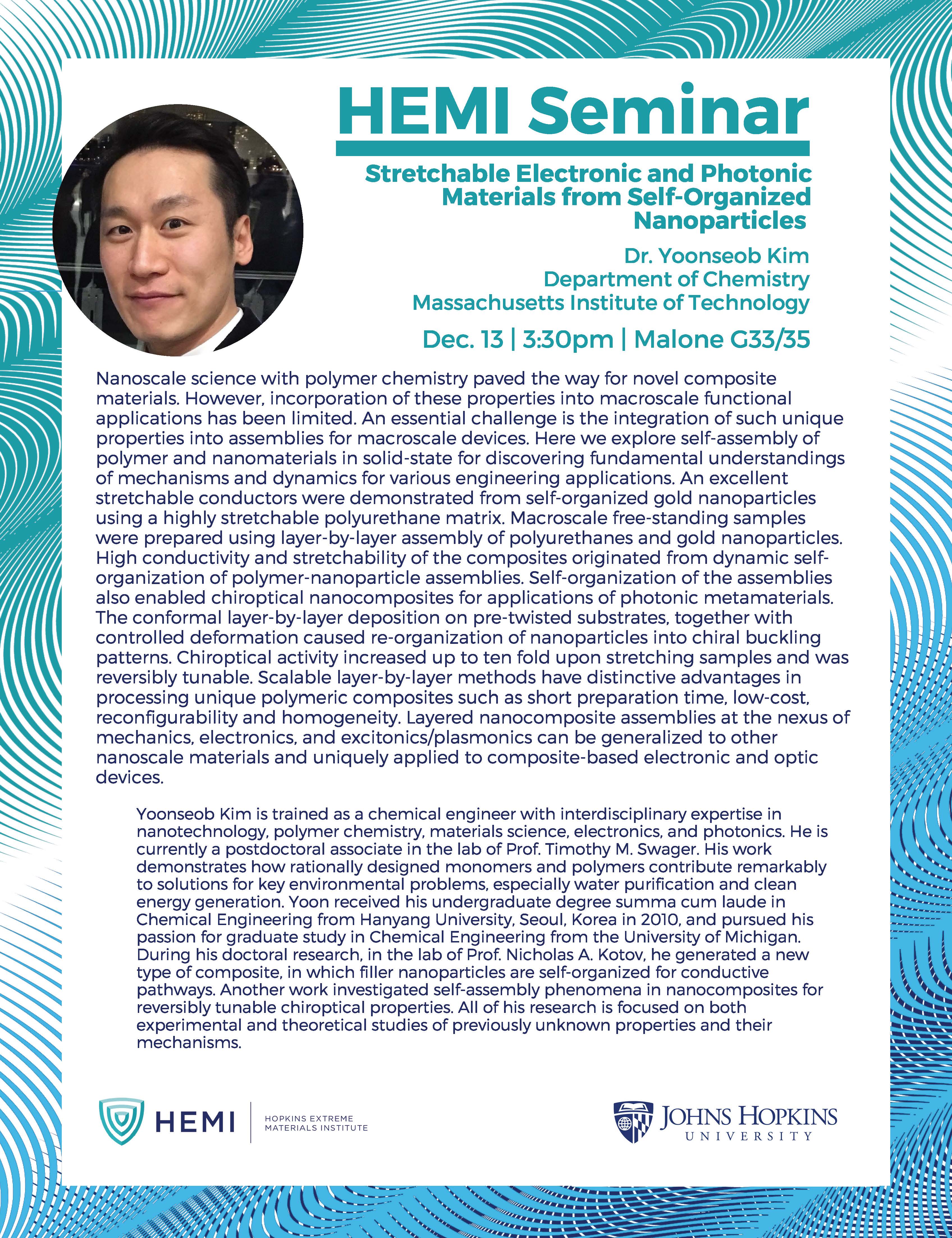December 13, 2018 @ 3:30 pm - 4:30 pm
Event Navigation
Stretchable Electronic and Photonic Materials from Self-Organized Nanoparticles
Nanoscale science with polymer chemistry paved the way for novel composite materials. However, incorporation of these properties into macroscale functional applications has been limited. An essential challenge is the integration of such unique properties into assemblies for macroscale devices. Here we explore self-assembly of polymer and nanomaterials in solid-state for discovering fundamental understandings of mechanisms and dynamics for various engineering applications. An excellent stretchable conductors were demonstrated from self-organized gold nanoparticles using a highly stretchable polyurethane matrix. Macroscale free-standing samples were prepared using layer-by-layer assembly of polyurethanes and gold nanoparticles. High conductivity and stretchability of the composites originated from dynamic selforganization of polymer-nanoparticle assemblies. Self-organization of the assemblies also enabled chiroptical nanocomposites for applications of photonic metamaterials. The conformal layer-by-layer deposition on pre-twisted substrates, together with controlled deformation caused re-organization of nanoparticles into chiral buckling patterns. Chiroptical activity increased up to ten fold upon stretching samples and was reversibly tunable. Scalable layer-by-layer methods have distinctive advantages in processing unique polymeric composites such as short preparation time, low-cost, reconfigurability and homogeneity. Layered nanocomposite assemblies at the nexus of mechanics, electronics, and excitonics/plasmonics can be generalized to other nanoscale materials and uniquely applied to composite-based electronic and optic devices.
Yoonseob Kim is trained as a chemical engineer with interdisciplinary expertise in nanotechnology, polymer chemistry, materials science, electronics, and photonics. He is currently a postdoctoral associate in the lab of Prof. Timothy M. Swager. His work demonstrates how rationally designed monomers and polymers contribute remarkably to solutions for key environmental problems, especially water purification and clean energy generation. Yoon received his undergraduate degree summa cum laude in Chemical Engineering from Hanyang University, Seoul, Korea in 2010, and pursued his passion for graduate study in Chemical Engineering from the University of Michigan. During his doctoral research, in the lab of Prof. Nicholas A. Kotov, he generated a new type of composite, in which filler nanoparticles are self-organized for conductive pathways. Another work investigated self-assembly phenomena in nanocomposites for reversibly tunable chiroptical properties. All of his research is focused on both experimental and theoretical studies of previously unknown properties and their mechanisms.





